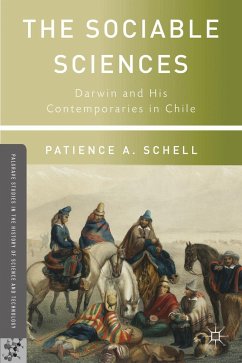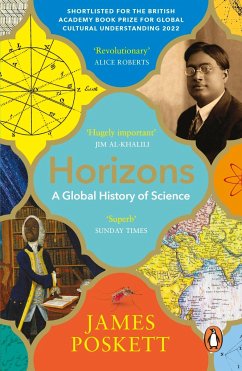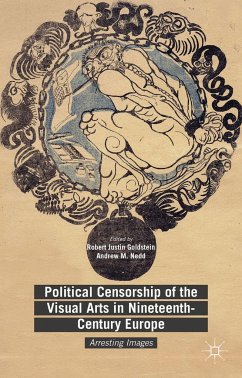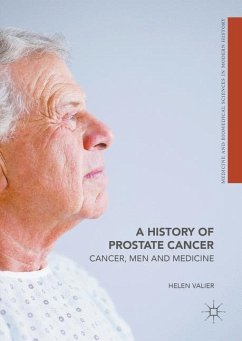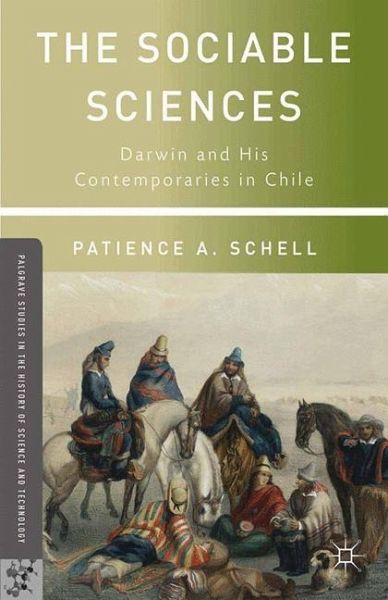
Versandkostenfrei!
Versandfertig in 6-10 Tagen
Weitere Ausgaben:

PAYBACK Punkte
19 °P sammeln!





This beautifully written history traces the fortunes of Charles Darwin and his contemporaries in Chile. It explains how they showed Chileans a new way to see their own natural environment, teaching a younger generation of scientists there and forging international networks that helped to shape the modern world.
Patience A. Schell Chair of Hispanic Studies at the University of Aberdeen, Scotland, UK. She is the author of Church and State Education in Revolutionary Mexico City (2003), and co-editor of The Women's Revolution in Mexico: 1910-1953 (2007) and New Approaches to Resistance in Brazil and Mexico (2012).
Produktdetails
- Palgrave Studies in the History of Science and Technology
- Verlag: Palgrave Macmillan / Palgrave Macmillan US / Springer Palgrave Macmillan
- Artikelnr. des Verlages: 978-1-349-44913-2
- 1st ed. 2013
- Seitenzahl: 312
- Erscheinungstermin: 10. April 2013
- Englisch
- Abmessung: 216mm x 140mm x 17mm
- Gewicht: 394g
- ISBN-13: 9781349449132
- ISBN-10: 134944913X
- Artikelnr.: 45074685
Herstellerkennzeichnung
Palgrave Macmillan
Tiergartenstr. 17
69121 Heidelberg
ProductSafety@springernature.com
'The Sociable Sciences narrates the daily life of naturalists in Chile, focusing on the middle fifty years of the nineteenth century. Darwin's visit to Chile is considered in detail, along with the life of Claude Gay, a French naturalist who resided in Chile for many years. Schell has made a persuasive argument for presenting the culture of discovery and exploration in Chile as a vital part of modern science, rather than as a 'case study' of peripheral interest. Her clear and strong prose commands a wide range of archival material from the New World and from Europe.' - Lewis Pyenson, Professor of History, Western Michigan University 'This is a wonderful, very well-written book with a very original approach. The narrative is especially coherent because the research programs of the book's protagonists were interlocking: Darwin and Gay were providing first accounts of many areas of the country and synthesizing them. The book will appeal to historians of science, of course, and not simply Latin Americanists: it is a model study of how affinity groups (social and professional networks) work in a particular setting, and the generalizations the author makes can be applied with profit to any society.' - Thomas F. Glick, Professor of History, Boston University
Für dieses Produkt wurde noch keine Bewertung abgegeben. Wir würden uns sehr freuen, wenn du die erste Bewertung schreibst!
Eine Bewertung schreiben
Eine Bewertung schreiben
Andere Kunden interessierten sich für


